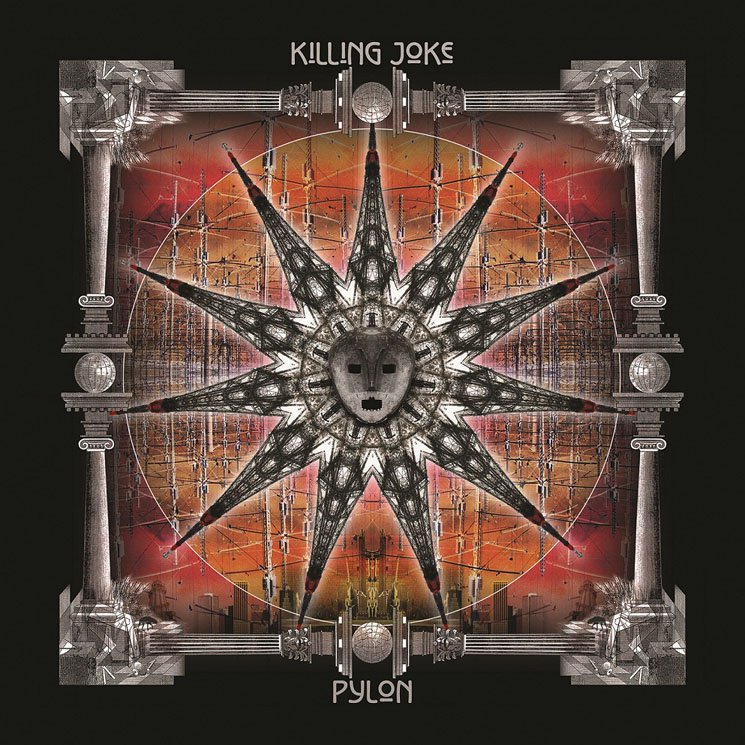It was inevitable that I would become a Killing Joke fan. Funnily enough, one of my teachers at high school introduced me to them.
This teacher probably made one of the best impressions on me in my last year of school. He made of point of looking out for me and we often discussed our mutual love of music. He was from Birmingham – or “the town that GBH were from”, as he’d say. He loved telling me about the festivals and concerts he’d attended. Glastonbury was a perennial favourite. He’d attended Foo Fighters Wembley show that I had a DVD copy of. And most of his stories were about the early days of punk. I loaned him a few punk CD’s of bands I’d recently discovered – stuff like Rise Against and Anti-Flag – and he loaned me a few Killing Joke records in return.
I remember him showing them to me in class one morning. There was the original eponymous album, along with the 2003 album of the same name, with the bright colours and the creepy clown on the cover. He also had the second album, What’s This For?, and possibly Night Time. He gave me a cheeky grin and explained that this was the music he liked to play loudly when his wife wasn’t home.
I was transfixed when I gave the CD’s a listen. Listening to the music was like taking part in some kind of cult ritual. It was raw, heavy and unique. The way that frontman Jaz Coleman hissed, shrieked spat and shouted his lyrics was so unconventional. The primitive tribal rhythms of the drumming was so powerful. The guitars were heavy and dynamic.
I quickly sought out my own copies of albums that featured two of my favourite drummers – Pandemonium, featuring Tom Larkin from Shihad, and Killing Joke [2003] featuring Dave Grohl. I read more about the band. It turned out Jaz Coleman was New Zealand citizen. He owned York St studios, and his influence as producer was obvious in the first Shihad album, Churn (and more recently, FVEY). I bought each successive Killing Joke album that the band released, and attended the Wellington gig of their first ever NZ tour in 2013.
Pylon is studio album number 16, and third in a triptych along with Absolute Dissent (2010) and MMXII (2012). It follows the same formula that we’ve come to expect – crushingly heavy and abrasive post-punk with lighter new wave moments. There are the typical doom and gloom dystopian themes of paranoia, mistrust of the powers that be and protesting against surveillance. What are the odds that all four band members have prepped for the apocalypse, each owning bunkers filled with protective tinfoil suits and enough emergency supplies to last them a few decades? But in all seriousness, at least the lyrics contain some substance. Give me protest music full of conspiracy theories over mindless pop music any day.
Album opener “Autonomous Zone” signals a return to the familiar KJ sound. The bridge is especially good, with a drum solo leading into a driving middle eight. Listen out for the stunning bass guitar fills as well. “Dawn Of The Hive” is relentless, with a synths in the chorus sounding glossy yet dangerous. We have the same barrage of sound found in Absolute Dissent married with some of the poppy catchiness of Night Time.
What I like about Pylon is that despite the subject matters and heavy riffing, it isn’t too oppressing. There are more electronic sounds than I would have expected in light of their recent albums. “Euphoria” sounds, well, euphoric, along the lines of “In Cytheria” and “You’ll Never get To Me”. “New Cold War” features a Nine Inch Nails styled offbeat dance beat. “New Jerusalem” borders on jangly. The brighter new wave style brings balance to the music, and prevents it from becoming a boring sludgefest. This is not to say that the band has gone soft on us, but too much chugged riffing can start to grate.
In this current technological era Killing Joke could be seen as irrelevant cynics – old men angrily yelling at clouds. But then you consider their legacy, influencing and inspiring bands like Metallica, Ministry, Nine Inch Nails, Nirvana, Shihad and Tool and it becomes clear that their importance doesn’t correlate with mainstream recognition. And if anything, Killing Joke should be celebrated for being underground and different. They’re not quite punk, metal or industrial. They’re not conventional. And their insistence on forging their own sound is what makes them so special.
After 16 albums, you could have forgiven Killing Joke if they had started to sound a bit stale. But they don’t. MMXII wasn’t my favourite, but Pylon is able to stand up on its own merit. It’s dense, murky and aggressive, without being overly depressing. It’s a visceral roar that pummels your ear canals. It’s paranoid and dark, subversive and political. It’s the sort of music to blast when the wife is out.It’s exactly what you want to hear from Killing Joke.
Joseph James



Good Review, I think this is the best of the three reunion albums thus far. Keep up the good work and I found a link to this review on Last.fm.
I agree, this is the strongest and most balanced album of the triptych. Thanks for the kind words.